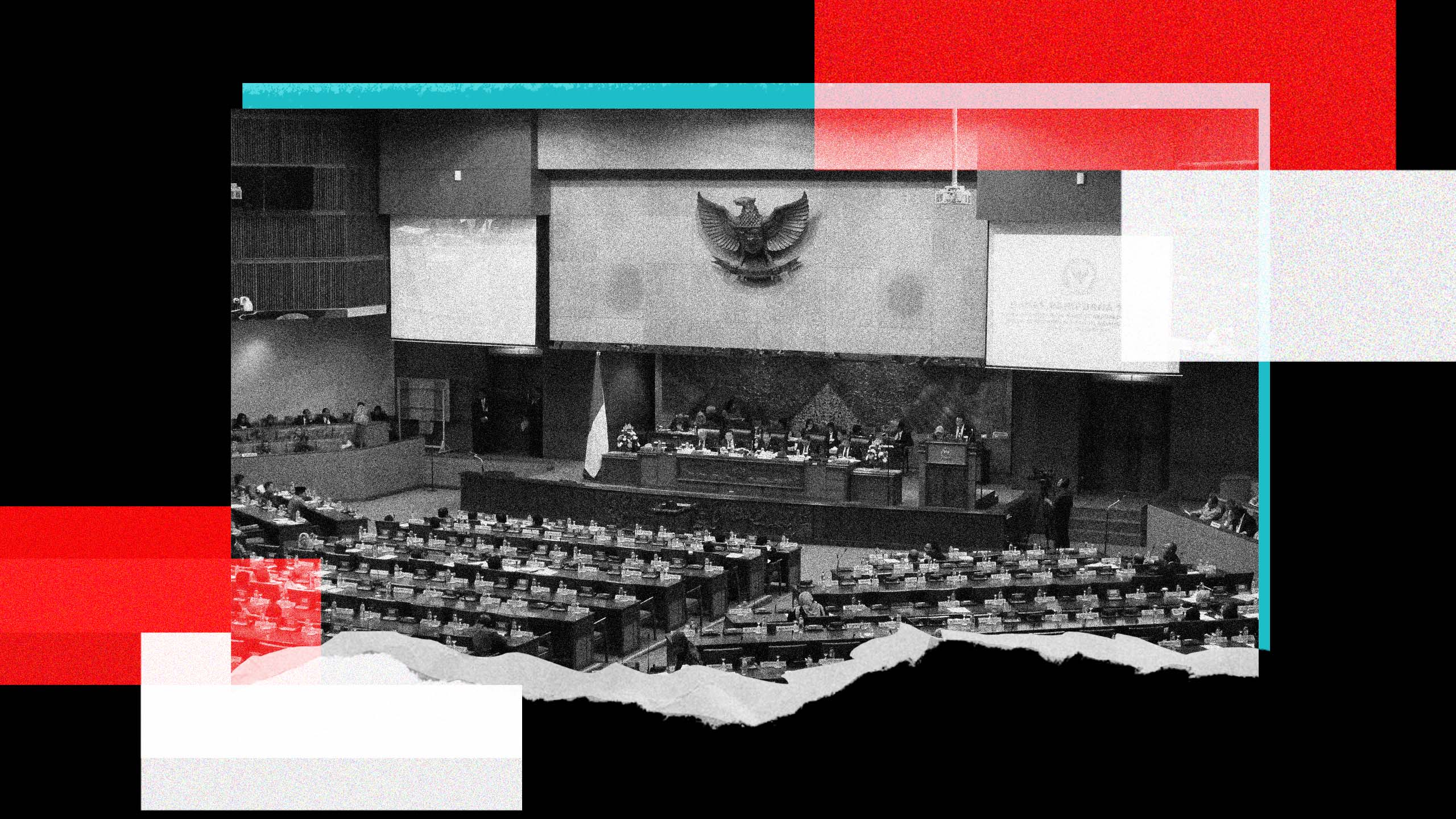A law banning sex outside marriage has been unanimously approved by Indonesia’s parliament, as part of a new penal code that codifies religious morality into civil law.
As only heterosexual couples can legally get married in Indonesia, the law functionally outlaws LGBTQ+ relationships with a punishment of up to a year in prison.
In a statement, Amnesty International Indonesia’s executive director Usman Hamid said the law was could be “misused to criminalize victims of sexual assault or to target members of the LGBTQ+ community.”
“Outlawing sex outside marriage is a violation to the right to privacy protected under international law,” Hamid said. “Consensual sexual relationships should not be treated as a criminal offence or a violation of ‘morality.’”
A similar law on sex outside marriage was planned in 2019, but scrapped by President Joko Widodo after huge protests. The new legislation would come into effect in three years’ time, after Widodo’s term-limited time as president ends in 2024.
The new law would allow children, parents or a spouse to lodge a police complaint. However, that could easily be abused.
Ajeng, a woman who lives in West Java with her partner and took part in the 2019 protests, told BBC News that the new penal code meant petty family disagreements could become crimes.
“With the new law, both of us can go to jail if one of the family decides to make a police report,” she said. “What if there’s one family member who has a problem with me and decides to send me to jail?”
While the Associated Press reported that some LGBTQ+ advocates viewed the code as a success for repealing a proposed article that would have explicitly made gay sex illegal, the ban on sex outside marriage seems to have the same effect.
In addition to sex outside marriage, the legislation also criminalizes couples living together before marriage (even if they’re not having sex), adultery, insulting the president, promoting contraception, joining communist organizations, unsanctioned public demonstrations and apostasy (renouncing a religion).
Indonesia is the world’s most populous Muslim majority country, with a population of over 270 million and six official state religions. Atheism and agnosticism are uncommon and would be criminalized under the new law.
Yasonna Laoly, minister of law and human rights, said the new penal code was a “historic step” in breaking away from the country’s colonial Dutch past.
“Finalizing this process demonstrates that even 76 years after the Dutch criminal code was adopted as the Indonesian criminal code, it is never too late to produce laws on our own,” he said in a press conference.
Indonesia has historically not criminalized homosexuality (with the exception of some specific regions), though there was a brief period in 1938 when Dutch colonial law attempted to ban expatriate “pederasts,” which did not extend to Indonesian citizens.
A 2020 survey from Pew Research Institute found that nine percent of Indonesians supported homosexuality. While some parts of the country, like Bali, have traditionally been more accepting of LGBTQ+ tourists, right-wing conservatism has been growing across the country in the past decade. Aceh province—which has historically banned homosexuality—has long been religiously conservative, and has had special dispensation to introduce strict religion-based laws since 2001.
A 2016 Human Rights Watch (HRW) survey of 70 LGBTQ+ Indonesians found that homophobic and transphobic rhetoric had skyrocketed that year.
“The impact of the anti-LGBTQ+ rhetoric from government officials is enormous for us as individuals. For those of us who have worked so hard and risked so much to come out, it is a major step backward,” an unnamed lesbian activist in Makassar told HRW. Other respondents reported being harassed in their homes, having protests attacked by counter-protestors or police, or seeing anti-LGBTQ+ media coverage leading to harassment.
Other countries with similar morality laws include current World Cup host nation Qatar, which punishes sex outside of marriage with up to seven years in prison.
The Muslim majority country’s laws may have affected tourism, as the country saw fewer visitors than expected and countries like the U.K. and Canada warned residents that the country’s strict local laws and customs would also apply to tourists.


 Why you can trust Xtra
Why you can trust Xtra


